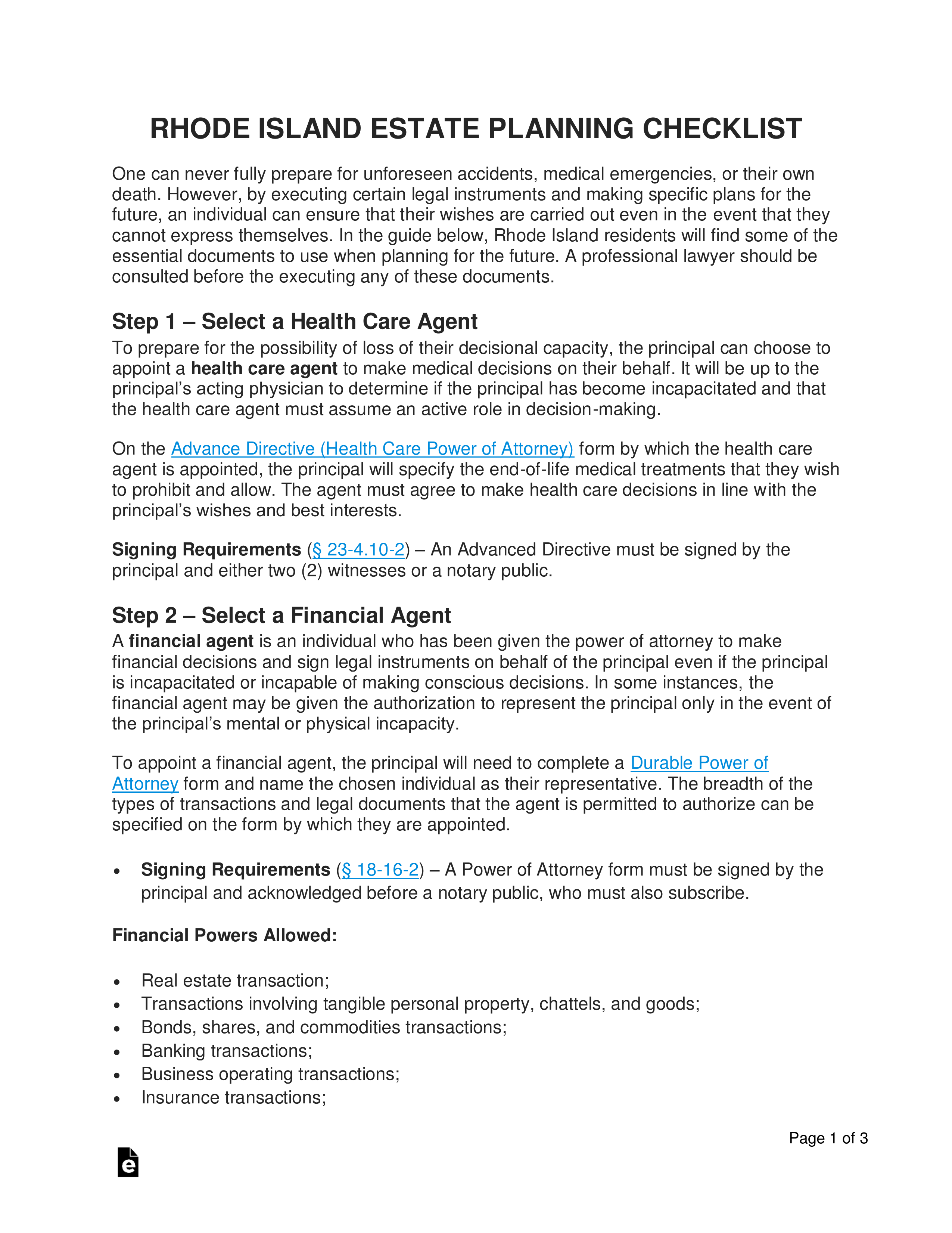

Financial concerns of any family members.An illness or disability of you or a family member.Marital status of you or any family members.
#Estate planning checklist update
If any of these items have changed, it is important to update your plan. Life events will happen, and when they do, updates to your estate plan should be made accordingly. Ensure that your estate plan will cover these costs. Take into consideration the expenses your family would incur should you pass away, and those that would continue after your passing. It also affords the co-owners or the business entity the ability to maintain the option to purchase the interest from an existing owner in order to restrict outsiders or undesirable business partners from becoming owners. A well thought out succession plan will benefit the departing owner, the business, its employees and the successor.Ī buy-sell agreement is part of a succession plan and allows a retired, disabled or deceased business owner to sell their share of the business. If you own a business do you have a succession plan?Ī business succession plan is a document outlining who will take over the business upon the owner’s retirement, death or disability. If you do have estate tax concerns, the proceeds of a life insurance policy owned by a trust will be distributed outside of your taxable estate. It will also distribute your assets privately.

It can also be used to meet other future planning needs such as paying off debt, equalizing inheritances, covering education costs, retirement funding and passing assets to a charity.Ĭonsider owning your life insurance in a trustĪ life insurance policy owned by a trust will ensure the proceeds are distributed according to your wishes. Life insurance is traditionally used to provide a death benefit to heirs. It can be a powerful planning tool as it avoids probate, and can help minimize federal estate taxes.Ĭharitable trusts can be utilized to give back to a cause that is meaningful to you.ĭetermine how much life insurance you need and the right type of policy for you This type of trust has flexibility and can be changed or revoked at any time while the owner is alive. These accounts will avoid probate so it is important to elect beneficiaries and ensure they are up-to-date.Ī living trust or revocable trust permits assets owned by the trust to avoid probate when passing to heirs. They should feel comfortable standing by your wishes if there are conflicting opinions from other family membersĪlso consider appointing someone to act on and handle your financial matters should you be unable to do so.Įlect beneficiaries for qualified retirement accounts and life insurance policies.They should be able to communicate your wishes to your doctor.When appointing someone, consider the following: It will also outline your preferences for medical treatment and care. When you establish an advance health care directive, you name one or more individuals to direct your medical decisions if you are unable to do so. If you do not have a designated medical care power of attorney, the court will make medical decisions on your behalf should you become incapacitated. Include contact information for relatives and friends and any other pertinent information your executor should be aware of. Also include online accounts and passwords. Create a list with instructions on where to find all of the documents above.Draft a letter of instruction for your heirs and executor.Other assets such as jewelry and collectables.Bank and investment account information.Health care documents: HIPAA authorization and advanced health care directives.
#Estate planning checklist license


 0 kommentar(er)
0 kommentar(er)
